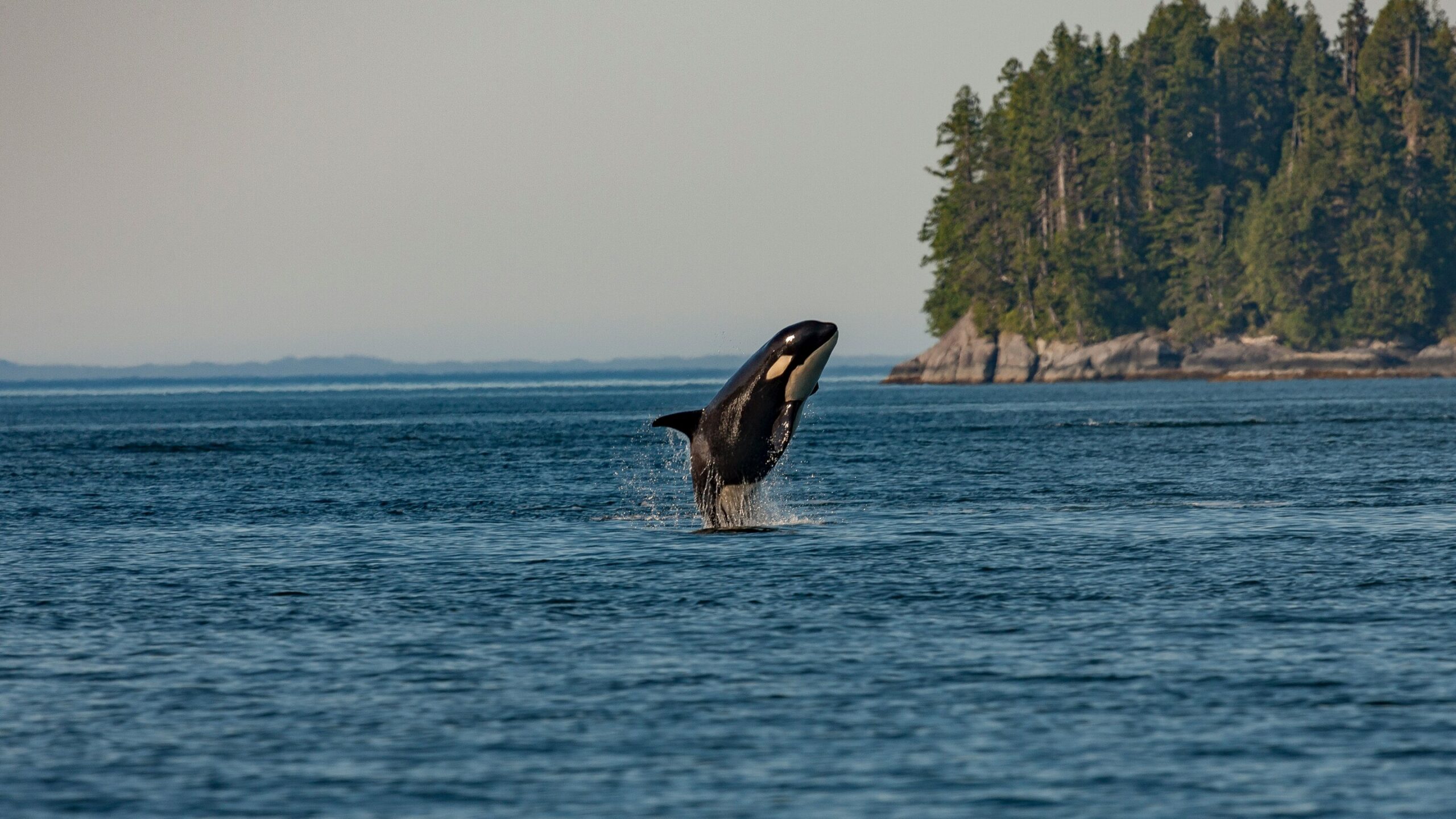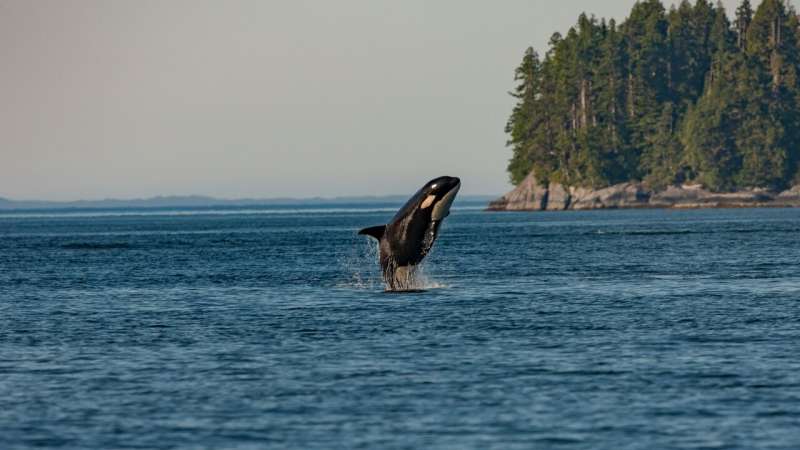

A pair of marine mammal scientists at The University of British Columbia, has found that claims that a lack of access to salmon is what is driving the crash in population numbers for southern resident killer whales of the Pacific are wrong.
In their paper published on the open-access site PLOS ONE, Burak Saygili and Andrew Trites describe how they consulted with sport anglers and whale-watching crews to learn more about the orcas’ access to chinook salmon.
Prior research has shown that the southern resident killer whales of the Pacific are struggling. Not only are their numbers dwindling, but the number of offspring is dropping dramatically. And nobody knows why.
Southern resident killer whales of the Pacific are a group of orcas that live off the coast of North America, from California to British Columbia, in parts of the Salish Sea. The latest census showed that there are now just 73 of them, living in three pods. The whales swim north during the warmer months and then head south again as winter arrives.
But by all accounts, they are struggling to survive. What makes their struggles all the stranger is that they are the only marine mammal in their ecosystem that is struggling—harbor seals are thriving, as are other types of whales, porpoises and sea lions.
Some in the field have suggested that the problem is a lack of access to salmon, the whales’ main source of food. But sport fishermen also looking for salmon report no problems catching them and have seen southern residents doing the same. And whale-watching crews told the researchers that they regularly see the endangered orca swimming among groups of salmon.
This, the researchers suggest, indicates that the whales are having trouble catching them. And that, they further suggest, could be because of noise made by boats. They note that the area where they live has far more sea traffic than regions farther north where northern resident orcas are flourishing.
They suggest it is also possible that the whales have trouble eating at different times of the year; they may find enough salmon during the summer, for example, but have trouble in the spring—a scenario that would explain why one pup was found to have starved to death this past spring.
More information:
Burak Saygili et al, Prevalence of Chinook salmon is higher for southern than for northern resident killer whales in summer hot-spot feeding areas, PLOS ONE (2024). DOI: 10.1371/journal.pone.0311388
© 2024 Science X Network
Citation:
Scientists find southern killer whales of the Pacific have access to enough food, deepening mystery of their struggles (2024, October 20)
retrieved 20 October 2024
from https://phys.org/news/2024-10-scientists-southern-killer-whales-pacific.html
This document is subject to copyright. Apart from any fair dealing for the purpose of private study or research, no
part may be reproduced without the written permission. The content is provided for information purposes only.